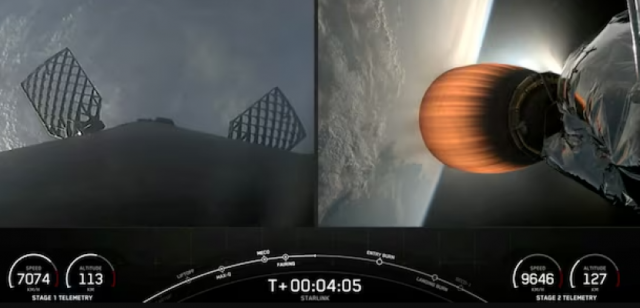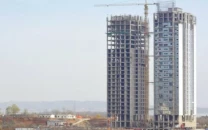SpaceX's Falcon 9 grounded after failure dooms Starlink satellites
First rocket failure in over seven years disrupts SpaceX's mission streak

SpaceX's workhorse Falcon 9 rocket was grounded by the US Federal Aviation Administration (FAA) on Friday after one broke apart in space and doomed its payload of Starlink satellites, the first failure in more than seven years of a rocket relied upon by the global space industry.
Roughly an hour after Falcon 9 lifted off from the Vandenberg Space Force Base in California on Thursday night, the rocket's second stage failed to reignite and deployed its 20 Starlink satellites on a shallow orbital path where they will soon reenter and burn up in Earth's atmosphere.
The attempt to reignite the engine "resulted in an engine RUD for reasons currently unknown," SpaceX CEO Elon Musk wrote early on Friday on his social media platform X, using an industry acronym for Rapid Unscheduled Disassembly that usually means explosion.
The Falcon 9 will be grounded until SpaceX investigates the cause of the failure, fixes the rocket and receives the agency's approval, the FAA said in a statement. That process could take several weeks or months, depending on the complexity of the failure and SpaceX's plan to fix it.
The botched mission of the world's most active rocket breaks a success streak of more than 300 straight missions during which SpaceX has maintained its dominance of the launch industry. Many countries and space companies rely on privately owned SpaceX, valued at roughly $200 billion, to send their satellites and astronauts into space.
Musk said SpaceX was updating the software of the Starlink satellites to force their on-board thrusters to fire harder than usual to avoid a fiery atmospheric re-entry.
"Unlike a Star Trek episode, this will probably not work, but it's worth a shot," Musk said.
The satellites' altitude is so shallow that Earth's gravity is pulling them 3 miles (5 km) closer toward the atmosphere with each orbit, SpaceX later said, confirming they would inevitably "re-enter Earth's atmosphere and fully demise."
SpaceX said the second stage's failure occurred after engineers detected a leak of liquid oxygen, a propellant.



















COMMENTS
Comments are moderated and generally will be posted if they are on-topic and not abusive.
For more information, please see our Comments FAQ